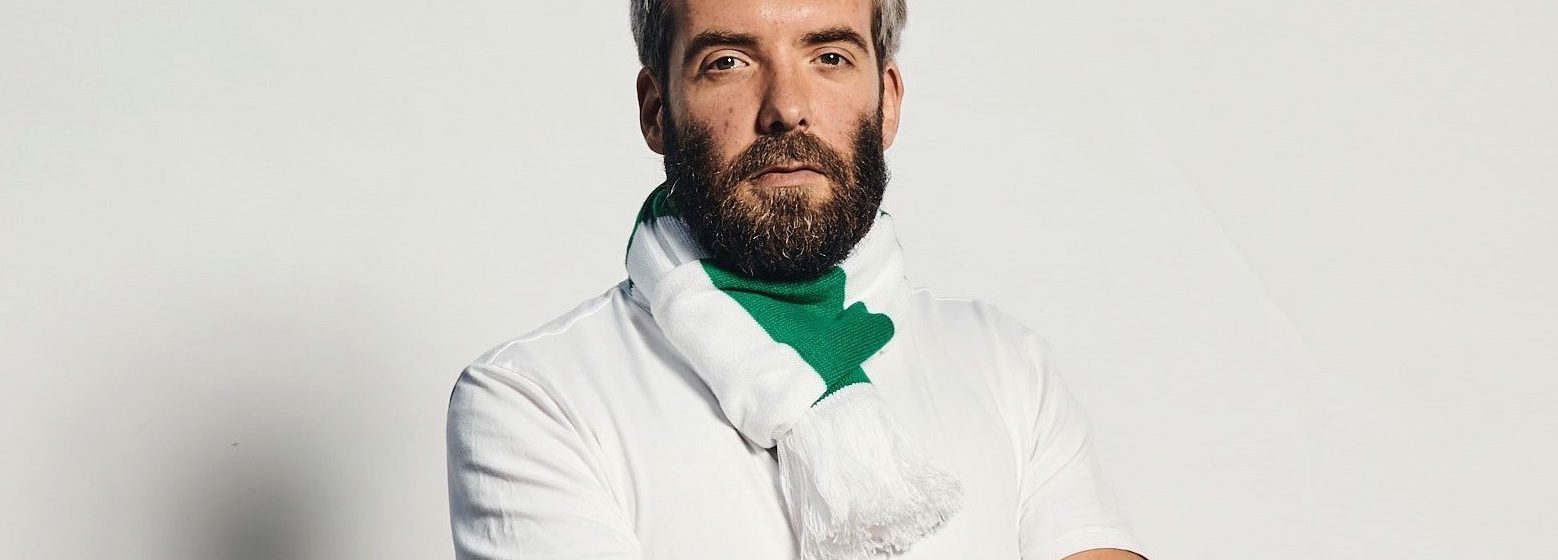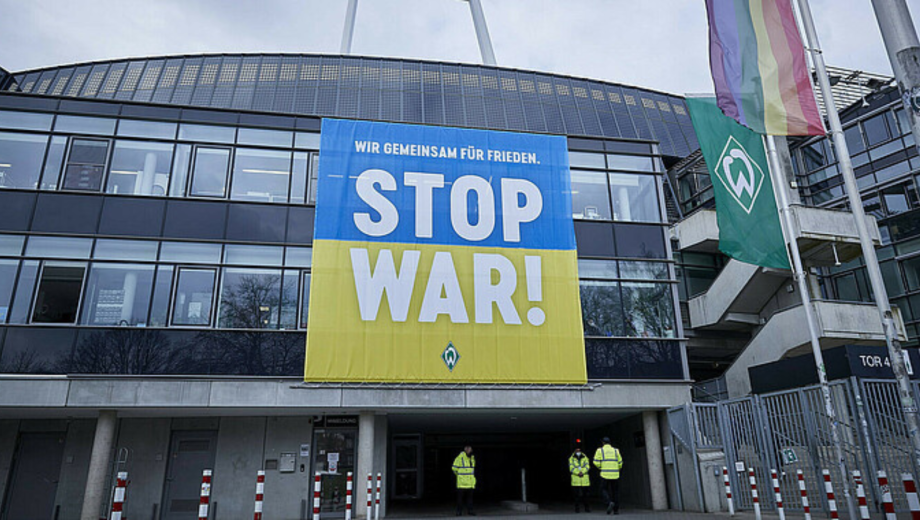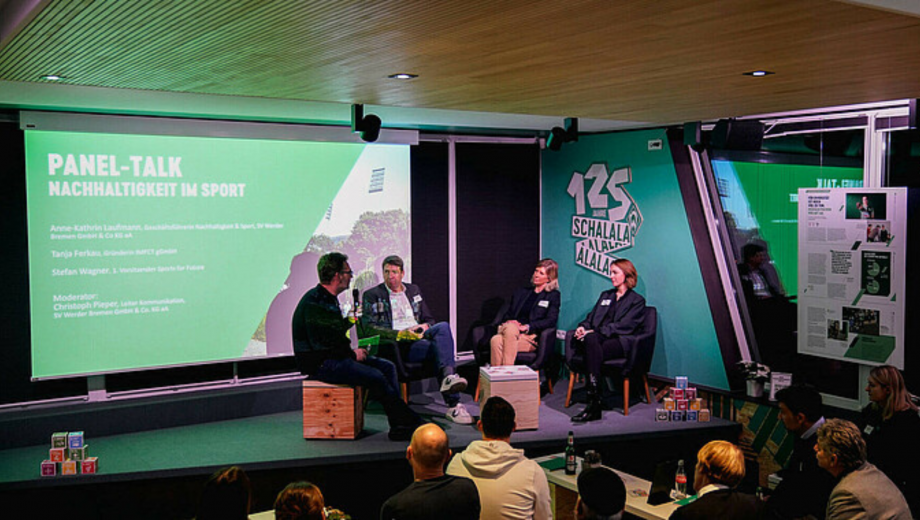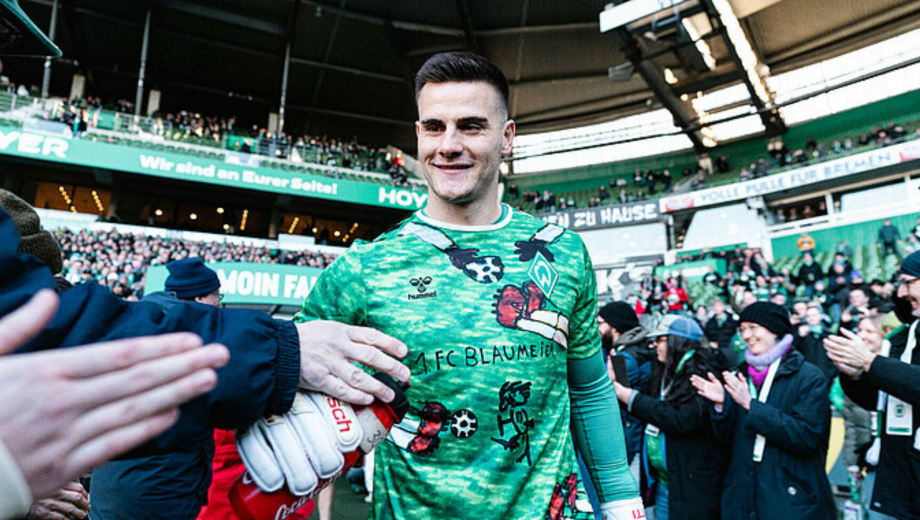EFDN Interview- Henrik Oesau from Werder Bremen
The next EFDN Interview features Henrik Oesau, who is the International Project Manager at Werder Bremen.
Henrik Oesau works at Werder Bremen in the CSR-management team. As an International Project Manager, Henrik is responsible for the organisational development and fundraising of the department. Henrik has completed his bachelor’s degree in sports, prevention and rehabilitation (German Sports University Cologne). Furthermore, he received a master degree in organisational development and sports management (University of Bielefeld). Prior to his employment at Werder Bremen, Henrik worked for NGOs in the sector of development assistance.
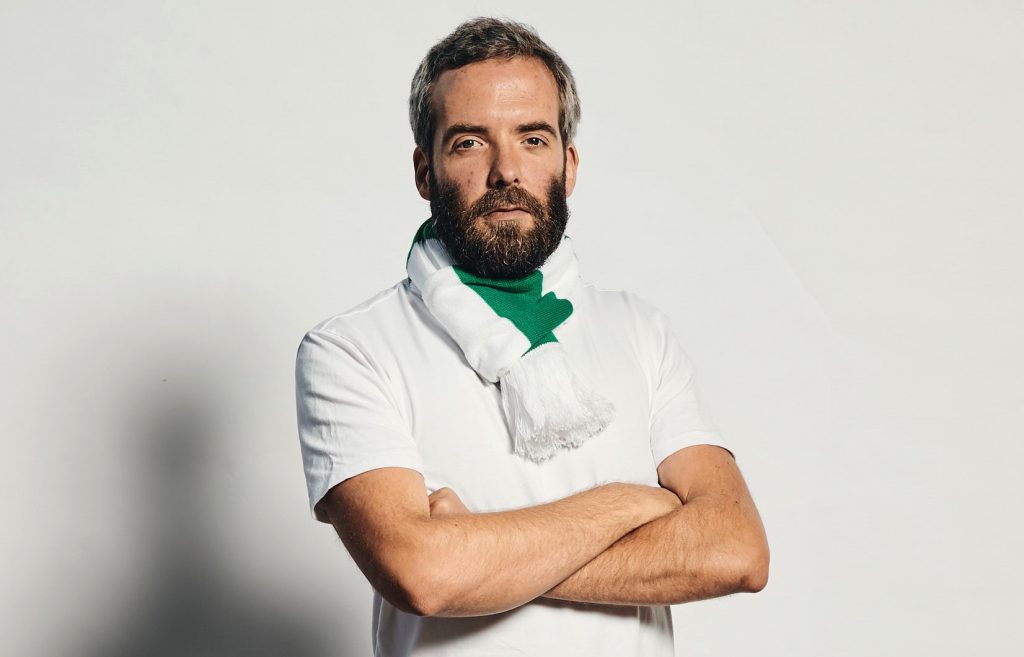
EFDN: What is a typical day in your role like? What do you love the most about working for the club/foundation?
I quote Galder Reguera from Athletic Club Fundaziao: meetings, projects, balance sheets, etc. [laughing]. The work itself throughout the corona crisis did not change a lot, it just became more digital. Our sport programmes are obviously not taking place at the moment, which has an impact not only on the participants but also on me personally. Everybody in our team misses the interaction and the face to face meetings with the participants, which motivate and assure you that you are helping a good cause. On a daily basis kids used to achieve goals nobody expected them to achieve in the beginning. I love working for Werder because I believe in the power of football and that it can be a catalyst for social advancement. Football brings people together who would normally not meet at all.
EFDN: What are the main target areas of your foundation?
Werder Bremen wants to achieve sustainable development in its three dimensions – economic, social and environmental – in a balanced and integrated manner. We fully support the Sustainable Development Goals. When it comes to environmental matters, we would like to reduce our ecological footprint. Social commitment also plays a big role for us as a club. Our main work in the CSR department takes place in our surrounding community. We support children and adolescents on and off the pitch (in their everyday lives) by motivating them to do sports regularly. Sports plays an important role when it comes to the wellbeing of the people. Our goal is to support our participants in strengthening their personalities.
EFDN: What is the Welcome through Football/ Willkommen im Fussball programme about? Can you please explain in more detail what the project is about, including the projects main aims and objectives and the impact this programme has had, within the community?
“Willkommen im Fußball” is a German program for young refugees, which started in the year 2015 by the German Children and Youth Foundation and the DFL Foundation. The programme is funded by the federal ministry for migration, refugees and integration. “Willkommen im Fußball” is a network programme for clubs of the 1st and 2nd Bundesliga. Alliances with grassroots football clubs are being built. The programme helps to lower the barriers for refugees (to be able) to integrate themselves not only into the football system but also into other sports and into German society as a whole.
“Welcome through Football” is an EFDN project systematically aiming for the development of young refugees. It was initiated as a one-year pilot project in 2019 and was granted for another two and a half years. With the programme sport offers became accessible for refugees in Bremen. Refugees are being empowered and take on more and more responsibilities as volunteers, caretakers, coaches or referees. Since the year 2013, when we started working with refugees, a three-step model assures the individual development of each refugee.
EFDN: What recommendations would you give other clubs when it comes to setting up a programme like Welcome through Football?
We decided not to evaluate our initiative during the first year. Since the start of the programme, we were convinced that the success would mainly be visible over a longer period of time. Furthermore, we realized that we were not experts for all the topics that came up during the implementation. Since the start of the programme, we work together with Refugio Bremen (a treatment centre for refugees) to create synergies and to achieve the best outcomes for the participants. At the moment seven coaches work in our programs. They all are refugees by themselves, started as participants and deeply connect with Werder Bremen and our work in the community.
EFDN: What kind of initiatives are you currently delivering to help to overcome the COVID 19 crisis?
Since COVID 19 is affecting all of us, this is something all the clubs have in common: We try to take care of the most vulnerable people in society – each club in its own way. At Werder Bremen, we focus on kids and adolescents being at home having small perspectives going back to kindergartens and schools. That is why we implemented a special YouTube kids channel, where we upload digital sports classes for different age groups every two days.
Furthermore, we called all club members (more than 2.000) at the age of 70 and above to ask for their wellbeing. We introduced neighbourly help organisations and delivered care packages for those in need.
More than 25.000 Euros were donated to support homeless people, by selling a special COVID 19 Werder jersey. For about four weeks in total, our first team’s chef cooked meals for three facilities working with homeless people.
EFDN: What makes the role of clubs and their foundation’s so important during this crisis?
Me personally I am not sure because I see the discrepancy in public discourse regarding the restart of the Bundesliga while all areas of society still are restricted. But I think the public interest in our sport goes along with social responsibility for our communities. During the crisis, we can prove that we fulfil our responsibilities. At the same time, I think that social initiatives during the COVID 19 crisis do not justify the importance of our clubs or foundations. We altogether have to prove our social relevance in a sustainable way being dedicated to our communities.
EFDN: How do you stay safe, healthy and fit? Do you have any tips or advice?
My family and I limit our contacts to others during the crisis. Taking the situation seriously results in a lot of restrictions. We are quite lucky sharing an allotment with two other families. I really miss playing football but I have two little daughters who keep me busy. The past days I fell asleep being even more exhausted compared to the time prior to the crisis [laughing].
EFDN: What are your (foundation’s) goals for 2020 and the near future?
We get a lot of feedback from the kids taking part in our leisure time activities. They miss the programmes. We certainly miss them, too! I really hope the situation gets better and we are allowed to do more successively. We all need sports for getting in touch with friends, for staying physically and mentally healthy and to forget the things that burden us.
EFDN: EFDN believes that Football is #More than Football. Why do you think your foundation is #morethanfootball?
In Bremen, the people say “Werder is Bremen is Werder”. That means that the club and the city are connected inseparably. The citizens of Bremen are very tolerant and have a very good sense for the community. The people are used to support each other – and Werder Bremen – if needed. Werder Bremen with its supporters is a reflection of its city. That is why Werder Bremen supports the city where needed and that is why Werder Bremen is #morethanfootball.
EFDN: To whom would you like to #passiton too, and why?
I would like to #passiton to Pierre Van Der Veken from KAA Gent Foundation. I am impressed by how they became entrenched in their community and I am interested in how their participants and community coaches are affected during the actual COVID 19 crisis.
- Have a look at the other EFDN Interviews and follow #EFDNInterview on Facebook, Twitter, Instagram and LinkedIn for the newest updates.
Welcome Through Football

